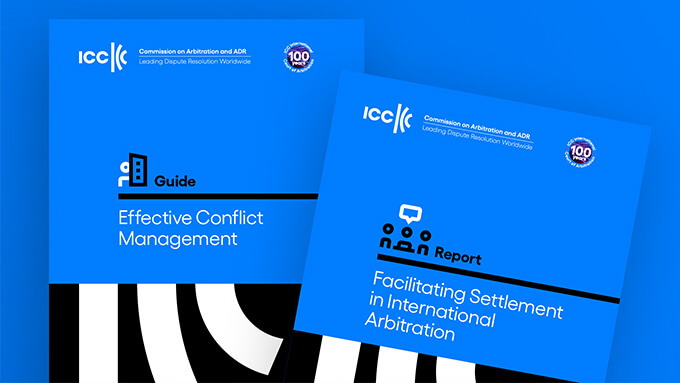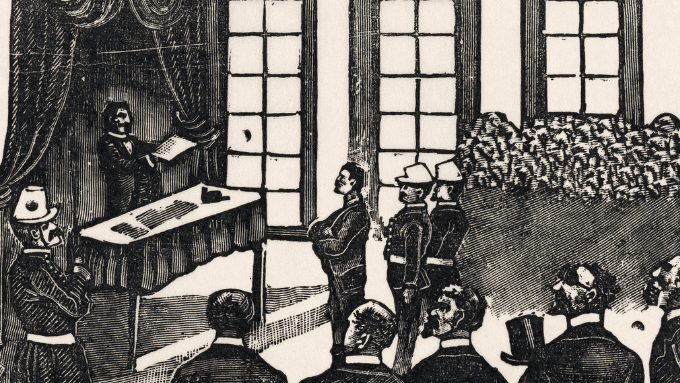Public Policy as Grounds for Refusal of Recognition
Introduction
In order to enforce a foreign arbitral award in another country, such foreign arbitral award should be recognized. There are two main legislations applied for the recognition of foreign arbitral awards under Turkish law. One of these is International Private and Civil Procedural Law numbered 5718 (“IPCPL”), and the other one is the Convention on the Recognition and Enforcement of Foreign Arbitral Awards dated 10.06.1958 (“New York Convention”).
As per the provisions of the New York Convention, in order for a foreign arbitral award to be enforced, the dispute should be of a commercial nature pursuant to Turkish law, and the seat should be within the sovereign territory of a member state. If these two conditions are not present, the IPCPL will be applied. The grounds for refusal of recognition that are set forth under the IPCPL and the New York Convention are parallel.
Public policy was analyzed under numerous Court of Cassation decisions. This newsletter article will focus on the Court of Cassation’s interpretation of public policy through a selection of decisions, both rendered in enforcement and set aside proceedings.
The Concept of Public Policy
Article V of the New York Convention and Article 54 of the IPCPL do not define public policy. According to the doctrine, public policy is “the body of institutions and rules that determine the basic structure of a society at a definite period of time in terms of political, social, economic, moral and legal aspects, and protect its fundamental interests.” [1] Public policy will be established under the laws of the state where the enforcement is sought in line with Article V (2) of the New York Convention, which provides that an arbitral award may be refused if “the award would be contrary to the public policy of that country.” The concept of public policy is heavily discussed at an international level and also within the framework of Turkish law.
Violation of public policy is examined ex officio by the courts; therefore, the definition and interpretation of public policy is left to the discretion of the court, and is evaluated according to the aspects of each specific case.
The concept of public policy, which is frequently discussed by the Court of Cassation, is defined by the Court of Cassation General Assembly on the Unification of Case Law with the decision[2] dated 10.02.2012 (“Decision of the General Assembly”).
The Decision of the General Assembly states that the concept of public policy is abstract, and is open to interpretation and changes through time and place. Although it does not have an established definition, it is regarded as "the body of rules protecting the basic structure and interests of society." The Court of Cassation frames public policy as “the violation of the fundamental values of Turkish law; common understanding of Turkish customs and morals; sense of justice that the Turkish laws rely on; sense of politics that the Turkish laws rely on; fundamental rights and freedoms under the Constitution; common principles accepted on an international level; private law rules based on the principle of good faith; the principles of law that express the moral principles and sense of justice mutually adopted by civilized communities; society’s level of civilization; and political and economic regime and rights and freedoms.” It is also stated that public policy is composed of rules that the parties must comply with and cannot freely exercise.[3]
The Decision of the General Assembly broadly defines public policy and also provides that the issue to be examined relates to whether the enforcement of the award constitutes a violation of public policy. Violation of public policy by the law applied to the merits does not suffice as grounds for refusal. Additionally, the General Assembly makes the following observations:
- The fact that the law applied to the merits is different from Turkish Law does not constitute a violation of public policy;
- An award without reasoning does not constitute a violation;
- Violation of every mandatory norm by an arbitral award cannot be considered as a violation of public policy.
These issues have also been raised under other decisions of the Court of Cassation and are discussed in more detail, below.
Some other decisions of the Court of Cassation referred to the Decision of the General Assembly and constituted the framework of public policy in line therewith. [4]
Circumstances Alleged to Violate Public Policy
In the early practice of the Court of Cassation, the court had a liberal approach for the concept of public policy and refused to recognize many arbitral awards as being part of public policy.[5]
As arbitration became more popular over the years, the Court of Cassation altered its position and changed its liberal approach to a narrower one.[6]
Some examples discussed by the Court of Cassation within the scope of public policy over the years may be summarized as independence and impartiality of arbitrators, contradiction of the mandatory norms of Turkish law, unreasoned arbitral awards, contradiction between the interim and the final awards of the arbitral tribunal, violation of legislation on public health and safety and tax legislation, not obtaining an expert report, not having a certified translation of the agreement, not issuing terms of reference, giving more value to the interests of one of the parties, the relationship between arbitral institutions and arbitrators appointed by these institutions, notification in a foreign language, arbitration costs, awards contradicting Turkish courts’ judgments, selection of more than one arbitral institution alternatively, awards relating to disputes that are not arbitrable under Turkish law, excessive interest rates and excessive contractual penalty.[7]
In some of these circumstances, the Court of Cassation established a violation of public policy and, in some cases, no violation was found. Discussing each matter and each decision will exceed the purpose of this newsletter article; therefore, a selection of circumstances discussed by the Court of Cassation will be addressed.
Violation of the Mandatory Provisions of Turkish law
It is generally accepted in the doctrine that violation of mandatory provisions of Turkish law does not violate public policy in every circumstance.[8] In line with the Decision of the General Assembly and other decisions the Court of Cassation also established that violation of public policy will generally arise in cases where there is a violation of a mandatory provision, but not every violation of mandatory provision will violate public policy.
The Decision of the 15th Civil Chamber dated 12.05.2014[9] interpreted the concept of public policy according to the Decision of the General Assembly, and stated that the public policy will be determined according to the social, economic, cultural and historical merits of the state where enforcement is requested. In this case, it was claimed that the arbitral award decided on an excessive contractual penalty and, therefore, was in violation of the public policy. However, the Court of Cassation ruled that the amount determined in the award was the amount determined under the settlement agreement, and even if the penalty is determined to be excessive, it will not violate public policy.
Unreasoned Arbitral Awards
Different decisions of the Court of Cassation,[10] especially the Decision of the General Assembly, provide that an unreasoned arbitral award does not violate public policy and, therefore, does not constitute a refusal for enforcement. These decisions are criticized in the doctrine on the grounds that the unreasoned awards may result in arbitrariness.[11] However, there are also opinions which suggest that the absence of reasoning in arbitral awards do not indicate arbitrariness, it cannot be considered as a refusal, but that arbitral awards having contradictory and inconsistent reasonings may be contrary to public policy.[12]
Contradiction Between Interim and Final Arbitral Awards
In a set aside proceeding, an alleged contradiction between the interim decision and the final award rendered by the arbitral tribunal was discussed in terms of public policy.
The Decision of the 15th Civil Chamber dated 12.03.2020 discussed the interim decision by the arbitral tribunal in which it was decided that the receivable awarded will be collected from the date of default without specifying a certain date, and that the final award arbitral tribunal specified such date. The Regional Court of Justice found a contradiction between these two decisions and annulled the arbitral award, but the Court of Cassation decided that the ruling of the Regional Court of Justice’s decision was incorrect as it found no contradiction.[13]
Violation of Turkish Tax Legislation
The Court of Cassation recognizes tax legislation as a matter of public policy and states that these matters may be examined within the scope of public policy.[14]
The Decision of the General Assembly of Civil Chambers dated 08.02.2012[15] upheld the decision of the 13th Chamber[16] that reversed the decision of local court on the grounds that an investigation should be carried out as to whether the arbitral award violated Turkish tax laws, whether there were fraudulent practices for tax evasion, and whether there was a violation of public policy. The dissenting opinion regarded the tax, a matter directly related to public policy, and stated that a situation contrary to the Turkish tax legislation within the arbitral award will violate public policy, and added that the case discussed in the decision of the Court of Cassation was not related to the tax to be paid to the state, but related to which of the parties should pay the accrued tax in accordance with the Turkish tax legislation and, therefore, it had no connection to public policy.
Public Concession Agreements
The doctrine provides that arbitral awards related to public concession agreements in which the award reduces the income received by the state and affects the economic structure may also be subject to public policy discussions. Failure by foreign arbitrators to interpret public interests intended to be established by public concession agreements, targeted revenue, and legislation in accordance with its purpose, may also constitute a violation of public policy.[17]
The Decision of the Court of Cassation dated 13.11.2012[18] dealt with a public concession agreement and put forth that the purpose of public concession agreements is public policy and a matter to be ex officio examined by the courts. Additionally, the Court of Cassation reversed the decision of the local court on the grounds that no examination or evaluation had been carried out, and a decision cannot be made based on incomplete examination, and also stated that the nature of the contract, its function and the legal consequences of the award should be examined and evaluated, and whether a violation of public policy has been made should be determined. Following the local court’s decision of insistence, the General Assembly of Civil Chambers[19] upheld the decision of the Civil Chamber.
The Decision of the Court of Cassation dated 23.02.2016[20] stated that the share of the Treasury under the public concession agreement was not a tax, but an important and continuous element of revenue resulting from the State"s transfer of public services.
The Court of Cassation decided that in this case, the share of the Treasury which the State was aiming to obtain a continuous income may be decreased, and the budget balances may deteriorate in a way contrary to the public concession agreement and relevant legislation. The arbitral award was found to be contradictory to the nature of public concession agreements, the purpose of the state to obtain a continuous income, the mandatory provisions of the law, the public interest and, therefore, Turkish public policy.
Not Obtaining an Expert Report, Not Submitting a Certified Translation of the Agreement, and Not Issuing Terms of Reference
In another decision[21] rendered in an action to set aside, the 15th Chamber discussed whether not having obtained an expert report following the site inspection, not having a certified translation of the agreement, and not issuing terms of reference would constitute violation of public policy. The Court of Cassation determined that the above-mentioned issues were related to the collection of evidence, were not matters of public concern and, therefore, did not constitute a violation of public policy.
Conclusion
Public policy has been discussed in various decisions of the Court of Cassation as the grounds for refusal of enforcement, or a reason for setting aside. However, the Court of Cassation has narrowed its interpretation of public policy over the years and, in this way, the perception of public policy as an obstacle before enforcement gradually started to lean in a positive direction. The narrow interpretation adopted by the Court of Cassation is, undoubtedly, more compatible with the nature of arbitration and paved the way for its popularity. As it has been discussed in our newsletter article, in order to refuse the enforcement of a foreign arbitral award on the grounds of public policy, there must be a violation of the fundamental principles of Turkish law. For instance, an arbitral award that contradicts the Turkish economic structure may face public policy violation claims. It is clear that there have been various attempts to frame the concept and the definition of public policy through the decisions of the Court of Cassation. In this respect, it is understood that the characteristics of each case are evaluated, and the effects of recognizing foreign arbitral awards on Turkish public policy are examined. As the approach for public policy is continuously changing, and each case has different characteristics, the Court of Cassation will continue to shape the frame of public policy.
[1] Erdem, Ercüment H.: Milletlerarası Ticaret Hukuku, İstanbul 2020, p. 718. All of the translations included in quotations are made by the author.
[2] The Court of Cassation General Assembly on the Unification of Case Law, dated 10.02.2012, 1/1, (www.lexpera.com).
[3] For the relationship between arbitrability and public policy, please see. Prof. Dr. H. Ercüment Erdem: “Relationship between Arbitrability and Public Policy in Light of the Decisions of the Court of Cassation,” Erdem&Erdem Newsletter, January, 2017.
[4]The 15th Civil Chamber of the Court of Cassation, dated 12.05.2014, 2183/3226, (www.kazanci.com). Please also see. Ekşi, Nuray: “Yargıtay Kararları ışığında Yabancı Hakem Kararlarının Tenfizinde Kamu Düzeni,” Public and Private International Law Bulletin, İstanbul Üniversitesi Yayınevi, No: 40 (1), 2020, p. 164-165, https://dergipark.org.tr/en/pub/ppil/issue/52638/734340.
[5] Ekşi, p. 167.
[6] Ekşi, p. 169.
[7] Erdem, p. 718; Ekşi, p. 172; Nomer, Ergin: Devletler Hususi Hukuku, İstanbul, 2017, p. 570-571.
[8]Erdem, p. 719; Ekşi, p. 172-174.
[9]The 15th Civil Chamber of the Court of Cassation, dated 12.05.2014, 2183/3226, (www.kazanci.com).
[10] The Decision of the General Assembly; the 15th Civil Chamber of the Court of Cassation, dated 31.03.2016, 895/2050, (www.lexpera.com); the General Assembly of Civil Chambers, dated 08.02.2012, 568/747, (www.lexpera.com).
[11]Tarman, Zeynep Derya: “Yabancı Mahkeme ve Hakem Karalarının Türkiye’de Tenfizinde Karşılaşılan Sorunlara İlişkin Bazı Tespitler,” Public and Private International Law Bulletin, İstanbul Üniversitesi Yayınevi, 2017, No: 37(2), p. 813, https://dergipark.org.tr/en/download/article-file/412015.
[12]Nomer, p. 572.
[13]The 15th Civil Chamber of the Court of Cassation, dated 12.03.2020, 279/1042. (Information on the relevant decision was provided during the 16th ICC Turkish Arbitration Day held by the ICC on 17.03.2021).
[14]The General Assembly of Civil Chambers, dated 30.9.2015, 1847/2020, (www.kazanci.com).
[15]The General Assembly of Civil Chambers, dated 08.02.2012, 568/747, (www.kazanci.com).
[16]The 13th Civil Chamber of the Court of Cassation, dated 29.12.2009, 4018/15528.
[17]Nomer, p. 570; Ekşi, p. 155, 156.
[18]The 13th Civil Chamber of the Court of Cassation, dated 13.11.2012, 19737/25406, (www.lexpera.com).
[19]The General Assembly of Civil Chambers, dated 30.09.2015, 1847/2020, (www.lexpera.com).
[20]The 13th Civil Chamber of the Court of Cassation, dated 23.02.2016, 16287/5292, (www.lexpera.com).
[21]Ekşi, p. 174; 15th Civil Chamber of the Court of Cassation, dated 26.09.2019, 2474/3640.
All rights of this article are reserved. This article may not be used, reproduced, copied, published, distributed, or otherwise disseminated without quotation or Erdem & Erdem Law Firm's written consent. Any content created without citing the resource or Erdem & Erdem Law Firm’s written consent is regularly tracked, and legal action will be taken in case of violation.


























